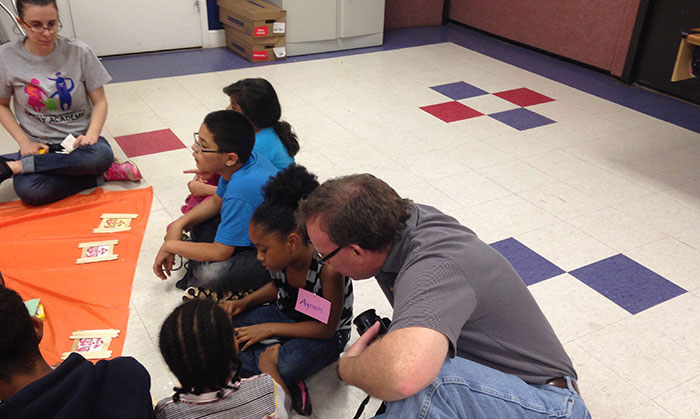Human Development and Family Sciences




Cognitive Development in Early Childhood
The Development of Planning
How do planning skills develop?
Under what conditions does a person show evidence for planning a sequence of actions
in advance? How do we distinguish between the lack of ability to plan and the choice
not to plan? Are there different types of planning (e.g., motor, action, and cognitive)
or does planning cross developmental domains?
McCarty et al. (1999) established that by 2 years of age toddlers could plan a sequence of actions during a tool use task. The questions listed above guide continuing research efforts on this topic. We observe inefficient actions when one does not make the initial cognitive effort to plan. In the developmental literature, does a lack of evidence for planning in a particular task demonstrate an inability to plan? We must distinguish between developmental ability (whether the child can plan) & performance (whether one makes a conscious or unconscious choice to plan). Using a cost / benefit analysis, people often can accomplish their goal without the need to expend the effort to plan ahead.
Family Academy in the East Lubbock Promise Neighborhood
The East Lubbock Promise Neighborhood (ELPN) is a large and multi-year US Department of Education funded initiative committed to working with residents in a low-income community to support and advocate for children.
Dr. Stephanie Shine and I are the domain leaders of the East Lubbock Family Academy component of ELPN. The mission of Family Academy is to promote healthy children and strong parenting by providing educational and learning opportunities for parents and children.
In 2015, the focus of Family Academy was to design and implement parent-child education classes. The goal of these classes is to encourage age-appropriate development in children from birth to kindergarten to ensure that children are ready for school. Classes are offered year-round at multiple sites in East Lubbock. Classes include family together time (e.g., sharing a meal) and activities for children and adults. The focus of the children's activities is on building school-readiness skills through enjoyable activities like reading, singing, dancing, crafts, and play. The focus of the parent program is fellowship and support, education, and information on community resources. The education component includes discussion of parenting and discipline techniques, child development (in multiple domains including social, emotional, and cognitive development), and the importance of language and self-regulation for school-readiness. Parental self-efficacy and empowerment are encouraged.
Research components of this project include assessments of children and adults to determine the child's level of development and the impact of the Family Academy program on parents and children.
Other Projects
Domains of development
What is the relationship among different developmental domains – especially the cognitive
and motor domains? How does the environment (e.g., impoverished or enriched) inform
this issue?
Environmental influences on the development of self-regulation in school
What is the impact of poverty and the pre-school curriculum on the child's abilities
to self-regulate?
Fathers
Empowerment among fathers living in poverty
The development of a father identity
Scholarship of Teaching and Learning
We know the sage-on-the-stage and the guide-on-the-side, but who is the mentor-in-the-center?
What is the link between an instructor's theory of teaching, course goals, and attendance
policy?
Human Development and Family Sciences
-
Address
Texas Tech University, P.O. Box 41230, Lubbock, TX 79409-1230 -
Phone
806.742.3000 -
Email
hs.webmaster@ttu.edu
